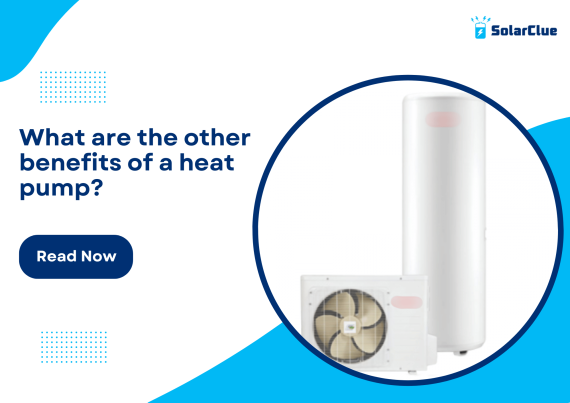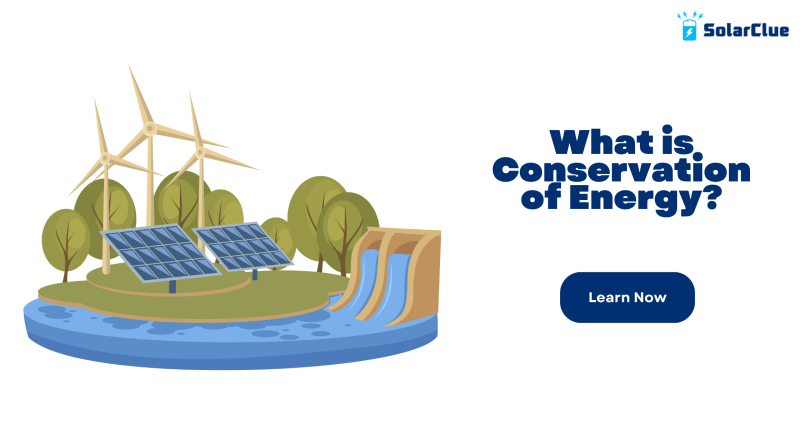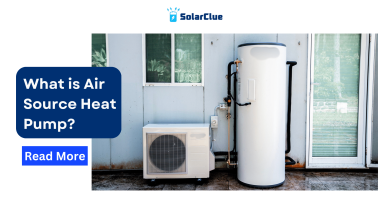What is Conservation of Energy?
Conservation of energy is very important for a sustainable future. But what is conservation of energy? It is the practice of using less energy to perform the same tasks, reducing energy waste, and promoting the sustainable use of natural resources. It’s a crucial step towards creating a more sustainable future, protecting the environment, and reducing our carbon footprint.
In this blog, we will discuss why do we need to conserve energy, and how to conserve energy at home. Let’s get started.
Table of Contents
What do you mean by energy conservation?
Energy conservation means using less energy to accomplish the same tasks or achieve the same results. It involves making conscious efforts to reduce energy waste and increase energy efficiency. Some examples of energy conservation include turning off lights when not in use, adjusting thermostats to optimal temperatures, unplugging electronics when not in use, and using energy-efficient appliances. By conserving energy, we can save money on utility bills, reduce our carbon footprint, and preserve natural resources for future generations.
Why is energy conservation important?
There are many reasons to conserve energy in our daily lives. Some of them are mentioned below:
- Protect the environment: Burning fossil fuels releases greenhouse gases. These gases trap heat, causing climate change. Conserving energy reduces our reliance on fossil fuels. It helps mitigate climate change impacts.
- Save money: Using less energy means lower utility bills. Energy-efficient appliances and practices save you money over time. The upfront cost gets offset by long-term savings.
- Reduce air pollution: Fossil fuel combustion pollutes the air we breathe. It contributes to smog and respiratory issues. Conserving energy minimizes harmful emissions. It improves air quality for healthier living.
- Conserve natural resources: Fossil fuels are finite resources. They will eventually run out if we keep consuming them. Energy conservation helps preserve these resources for future generations.
- Increase energy independence: Excessive reliance on imported fossil fuels poses economic and national security risks. Conserving energy reduces our dependence on foreign energy sources. It promotes energy self-sufficiency and stability.
How can we conserve energy?
There are numerous ways to conserve energy. But do you wonder how to conserve energy at home? As individuals, we can do our bit by saving electricity consumption at our homes. One effective approach is to adopt energy-efficient appliances.
We all use so many electric devices, such as water heaters to fulfill our daily needs. But these devices consume a lot of energy to operate. This leads to high electricity bill. Also they have bad effect on the environment.
To avoid such consequences, every Indian home must invest in appliances like a heat pump. It will efficiently meet your daily hot water needs, consuming 75% less electricity than a geyser.
What is a heat pump and how it works?
A heat pump system is a water heating appliance just like a geyser. But the main difference lies in the way it works. A geyser uses direct electricity to heat water. On the other hand, a heat pump works on the principle of transferring heat from one place to another. Instead of using electricity to heat water directly, it uses electricity to transfer the heat. This requires less electricity than direct heating.
This system works by transferring heat from the surrounding air to the water in the storage tank, rather than generating heat directly. It consists of three main components: an exhaust fan, a compressor, and a storage tank. The exhaust fan draws in air from the surrounding environment, which is then compressed by the compressor. This compression process raises the air temperature, and the heat is transferred to the water in the storage tank through a heat exchanger.
This process consumes less electricity, as it does not use direct electricity to heat water. Instead it uses natural resource (heat) to heat the water. It absorbs the heat, which is used to produce hot water. So this results in conservation of energy, leading to cost savings and positive environmental impact.
What are the other benefits of a heat pump?

In addition to energy conservation, heat pumps offer several other benefits:
1. Cost-effective
Heat pumps have high upfront cost. However, they make up for it through lower operating costs. Heat pumps transfer heat rather than generating it directly. This uses far less electricity – up to 75% less. Over its 10-15 year lifespan, a heat pump can save you hundreds or even thousands in energy costs. So it is actually a cheaper alternative to other traditional water heaters like geysers.
2. Long lifespan
With proper maintenance, heat pumps last 15 years or more – significantly longer than standard electric geysers (8-10 years). So there is no need for replacement for a long time. This extended life cycle also contributes to it being a cost-effective option.
3. Reduced water wastage
Traditional tank water heaters constantly heat and reheat the same water, leading to significant energy losses. Heat pumps heat water more efficiently, so you don’t have to run the tap as long waiting for hot water. This conserves water, especially in households with long pipe runs.
4. Manual temperature setting
Heat Pumps have the feature of manually setting temperature at the desired temperature. Normally, it heats water to a temperature of 55°C. But it can be changed as per the required. This feature is not there in traditional water heaters.
5. Efficient in cold climates
One common misconception about heat pump water heaters is that they may not perform well in colder climates. However, modern heat pump water heaters are designed to be efficient even in low temperatures. They can effectively extract heat from the surrounding air, even when the temperature drops below freezing. This makes heat pump water heaters a viable and energy-efficient option for hot water needs in various climates, including colder regions.
Conclusion
Energy conservation is a collective responsibility, and adopting energy-efficient practices and appliances like heat pumps is a step towards a sustainable future. By reducing our energy consumption, we can not only save money on utility bills but also contribute to a more sustainable future for ourselves and future generations. Embrace energy conservation and make a positive impact on the environment while enjoying the benefits of cost-effective and efficient water heating solutions.
Visit SolarClue® to see the best heat pump water heaters. SolarClue® is an online marketplace where solar energy products are sold at discounts up to 50%.



